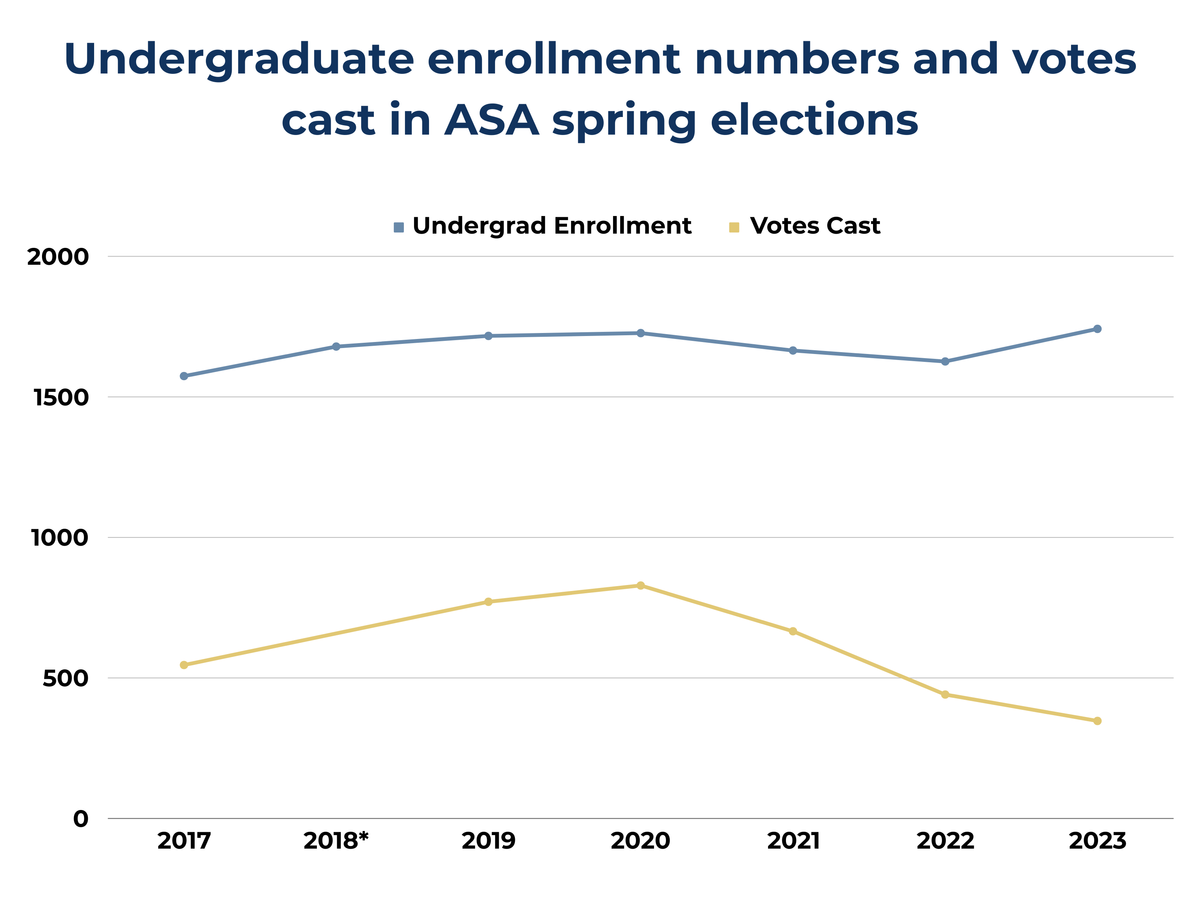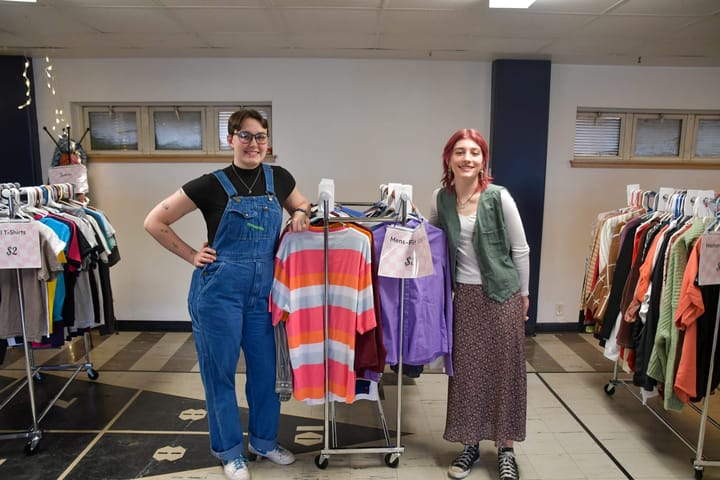ASA approves changes to election process

The Augustana Student Association made several changes to its constitution in February in preparation for the spring election season, amending the process of installing treasurers and technical directors, the election of at-large senators and the general election timeline.
According to ASA Technical Director Prince Adhikari, the ASA Election Commission noticed loopholes regarding who can run for at-large senator and treasurer positions in the fall election process and recommended changes. Adhikari said the senate approved the proposed changes on Feb. 18, based on the urgency of the issues.
Fourth-year Sen. Schaler Starks said the treasurer amendment was put into the reading period three weeks ago and voted on two weeks ago. Starks also said she worked on the amendment through J-term with Adhikari.
This amendment change will make the position similar to the technical director, as ASA will interview candidates before the senate votes to approve one. Previously, the treasurer was selected like other senators — through a popular vote by the student body.
“[The treasurer’s role is] more about what you can do and the knowledge base you have,” Starks said. “So we thought it would be good to protect this role by making it less of a popular vote.”
Adhikari said the treasurer candidates will be interviewed by the newly approved Nominations and Recommendations Committee, which was also established on Feb. 18. This committee will include the ASA president and vice president, the ASA adviser, two affinity senators and a diversity, equity and inclusion staff member.
“We did this intentionally so that the committee is diverse enough and then there are no issues of a certain population being dominant,” Adhikari said.
According to Adhikari, this committee will interview and nominate people for the treasurer position this spring, and then the senate will vote and select one candidate. Adhikari said ASA chose this process to install future treasurers instead of a popular vote from the student body to protect the position.
“We have seen ASA elections not being competitive enough, so someone can just take advantage of that loophole and randomly be a treasurer because it’s a paid position as well, and it looks good on the resume, too,” Adhikari said.
Adhikari said the NRC will nominate the technical director as well. Prior to this amendment, the president and vice president appointed the technical director. Adhikari said now the senate will have more say in this position.
In addition to amending the treasurer and technical director election processes, ASA also voted to move elections for at-large seats from the fall to the spring. Starks said this amendment fixed a loophole in ASA’s constitution, which said that freshmen could not vote for at-large senators but didn’t say they couldn’t run for that position.
“The freshman senate position is very competitive, and sometimes when they see how competitive that race is, they opt to be at-large senators instead,” Starks said. “But at-large is supposed to represent the student body as a whole.”
Freshman Sen. Anna Pirrung said she became an at-large senator this fall and recently helped draft this new amendment into the election code.
“Jumping in right away was kind of a lot,” Pirrung said. “Obviously, we have freshman senators that run right off the bat too, and I guess I kind of took on that role as well.”
Pirrung said this change will hopefully bring awareness to what an at-large senator’s position requires.
“Honestly, looking back on it, I couldn’t confidently say that I knew enough about the student body to be at-large at that point,” Pirrung said. “So in a sense, it ensures that the at-large position is more apt to respond to the entirety of the student body and not just the freshmen.”
Senior Slater Dixon, ASA secretary, said the amendment to the at-large election process will go into effect during spring elections in March. Dixon said this amendment will also help ASA be able to meet earlier in the next academic year.
“Without at-large senators being elected in the fall, next fall’s senate can meet with a quorum of all of the body without needing to first have the freshmen senators elected,” Dixon said.
Dixon also said ASA is trying to get a better election turnout for both candidates and voters.

“We haven’t had a competitive race for the president and vice president since my sophomore year, and we haven’t had competitive elections for my class ever,” Dixon said.
Adhikari said eight of the current 28 senators were elected by default, and the positions of president, vice president, secretary and treasurer were also uncontested.
Junior Sydney Hansen, a biology, psychology and Spanish triple major, said she voted in the fall 2023 election but not in the previous academic year.
“I voted in the ASA election to support my friend who was running for sophomore senator,” Hansen said. “But I don’t think I voted last year because I didn’t know anyone running.”
Adhikari said in spring 2023, 347 students voted in the elections, and fewer students participated in the fall elections.
“We just had about 100 people [vote] in fall. We still had at-large positions open, and we had very few people vote, especially for freshman international senators,” Adhikari said.
Adhikari said 441 students voted in the spring 2022 elections, and 240 students voted in the following fall election.
Freshman music major Fina Vander Poel said she was planning on voting in this academic year’s fall election but simply forgot.
“There was a lot going on at the beginning of the year as a freshman, so it just slipped my mind, and I didn’t realize until elections were over,” Vander Poel said.
Adhikari said ASA is focusing on marketing to get the word out about elections and is also partnering with the Student Success Center.
“Once the polling is open, everyone on campus will be sent a Navigate notification on their phone so that they know that elections are open,” Adhikari said. “Because, until now, we have just relied on Instagram so far to get the word out.”
Adhikari also said ASA opened the form for declaration of candidacy for general elections on Feb. 26, which was done earlier to give people time to think about running and learn more about what ASA senators do. Last year, this form opened on April 3 and voting began on April 19.
Adhikari said the election timeline is longer this year because the election code specifies that the declaration of candidacy forms should be made available at least 21 days prior to the “primary elections,” which happen when there is more than one nomination for president and vice president.
Adhikari said the previous election commissions did not strictly follow the election code, so elections from prior years had a two to three-week timeline.
Dixon said the first presidential debates will appear on March 18 at 7 p.m. in Hamre Recital Hall. General polling will open on March 26 at 10 a.m. and close on March 28 at 5 p.m.



